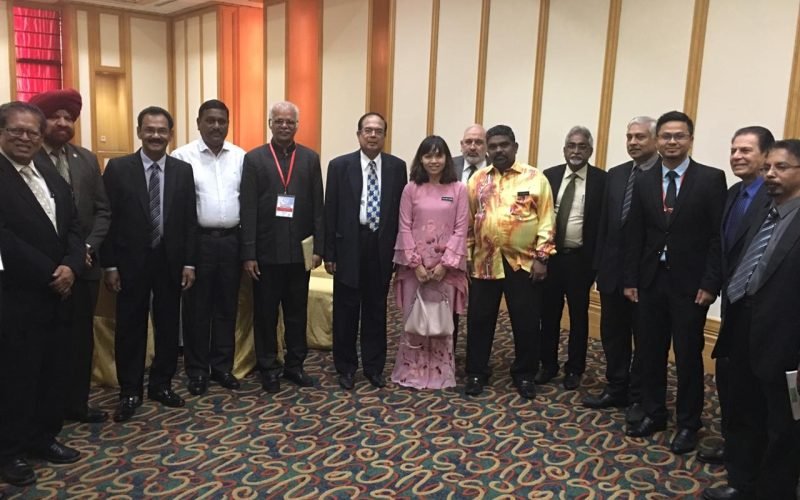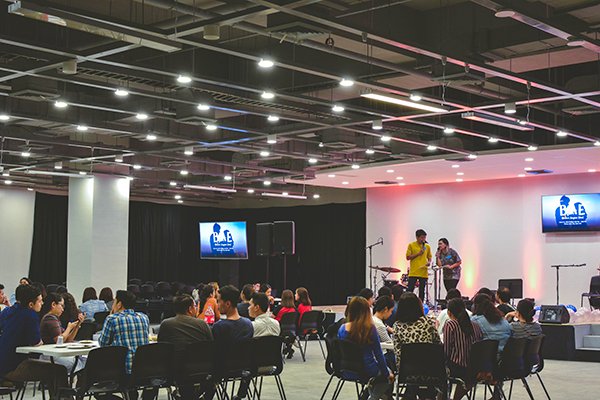ASIA PACIFIC SCHOOL PSYCHOLOGY ASSOCIATION
The Asia Pacific School Psychology Association (APSPA) was
founded during the First MaSPA International Conference on
School Psychology held at Hotel Grand Seasons, Kuala
Lumpur, Malaysia
Welcome to APSPA
The Asia Pacific School Psychology Association (APSPA) was founded during the First MaSPA International Conference on School Psychology held at Hotel Grand Seasons, Kuala Lumpur, Malaysia on January 11, 2019, by Prof. Panch. Ramalingam of Pondicherry University, India. After launching, core committee members unanimously resolved to elect office bearers of the association with available school psychologists from different countries to promote school psychology services in the Asia Pacific region. This would meet the requirements for the promotion of universal school psychology services, particularly in the area of mental health and well-being. The present headquarters is in Malaysia.
Within a year, approximately 200 members from eleven countries joined. The first Executive Council of APSPA was formed in 2019, and it proposed to host its First International Conference on Mental Health and Well-being among School Children in Colombo, Sri Lanka on February 10-11, 2020. The second International Conference was held virtually at AIMST University, Malaysia in 2021, and the third International Conference was conducted at Assumption University of Thailand, Bangkok in 2022. The 4th International Conference took place on 15th and 16th March 2023 at the Central University of Haryana, Mahenderagarh, India.
Due to the overwhelming response from stakeholders, the APSPA ventured to organize several activities such as international collaboration with academic institutions, organizing various workshops, and training programs in school psychology. The International Journal of Asia Pacific School Psychology was launched in January 2020 to encourage research activities in school psychology and publishes peer-reviewed papers regularly.
Our action plan is well-structured to promote school psychology activities in the Asia Pacific Region. As a professional voice, we remain committed to enhancing the education of school psychologists in the Asia Pacific region and increasing awareness of the importance of mental health and well-being among school children.
School psychology is a field of study and practice that focuses on addressing the mental health, academic, and behavioral concerns of students in schools. The practice of school psychology in the Asia Pacific region is growing, and there are many different approaches to the field.
In some countries, such as Australia and New Zealand, educational psychology is a well-established profession. School psychologists in these countries typically have graduate-level training in psychology, education, and counselling, and work with students, teachers, and families to promote positive outcomes in schools.
In other countries, such as Japan and South Korea, school psychology is a relatively new field. In these countries, school psychologists often work as counsellors or mental health professionals in schools, providing individual and group counselling services to students.
In China and other parts of the region, school psychology is often integrated into the broader field of educational psychology. Educational psychologists in these countries work with schools and educational systems to develop and implement programs and interventions that support student learning and development.
To initiate, the practice of school psychology in the Asia Pacific region is evolving and growing, with a focus on promoting positive outcomes for students and improving the overall quality of school psychology services in the region.
Prof. Panch. Ramalingam
President, APSPA
About APSPA
VISION
Assurance of easy accessibility of academic resources, development of skills for mental health and well-being in all children and youth for thriving in life.
MISSION
The Asia Pacific School Psychology Association (APSPA) is a professional organization that supports and advocates for school psychologists to provide professional training so as to have a positive impact on school systems to improve academic skills, social-emotional functioning, and mental-behavioural health of all students.

Core Values
Integrity:
APSPA is committed to high standards, ethical principles, social justice, honesty, fairness, and treating others with dignity and respect.
Diversity:
APSPA honours individual, cultural, and other contextual differences in our own interactions as they shape students' development.
Collaboration: APSPA collaborates with other organizations, agencies, and others to develop common concern. Excellence: APSPA promotes high standards of service delivery and resource deployment.

Purposes
To serve the educational and mental health need of all students To provide opportunities for the professional growth of school psychologists To provide professional training to meet the specific demands of the particular country as well as the global needs in general. To popularize the services and practices of psychology in the schools among the public To advance the standards of the profession of school psychology To cooperate with other agencies, offices, and organizations on subjects of common concern

Psycho-Educational Assessment
The insights gained from assessment are often used to inform and direct counselling or coaching sessions. This allows us to target your child’s specific strengths and weaknesses.

Educational Coaching
School psychologists help schools meet the social, emotional, learning and behaviour needs of students. Working closely with the school administration, teachers, students and parents, school psychologists help schools make improvements that are good for all students, particular groups of students or individual students.

